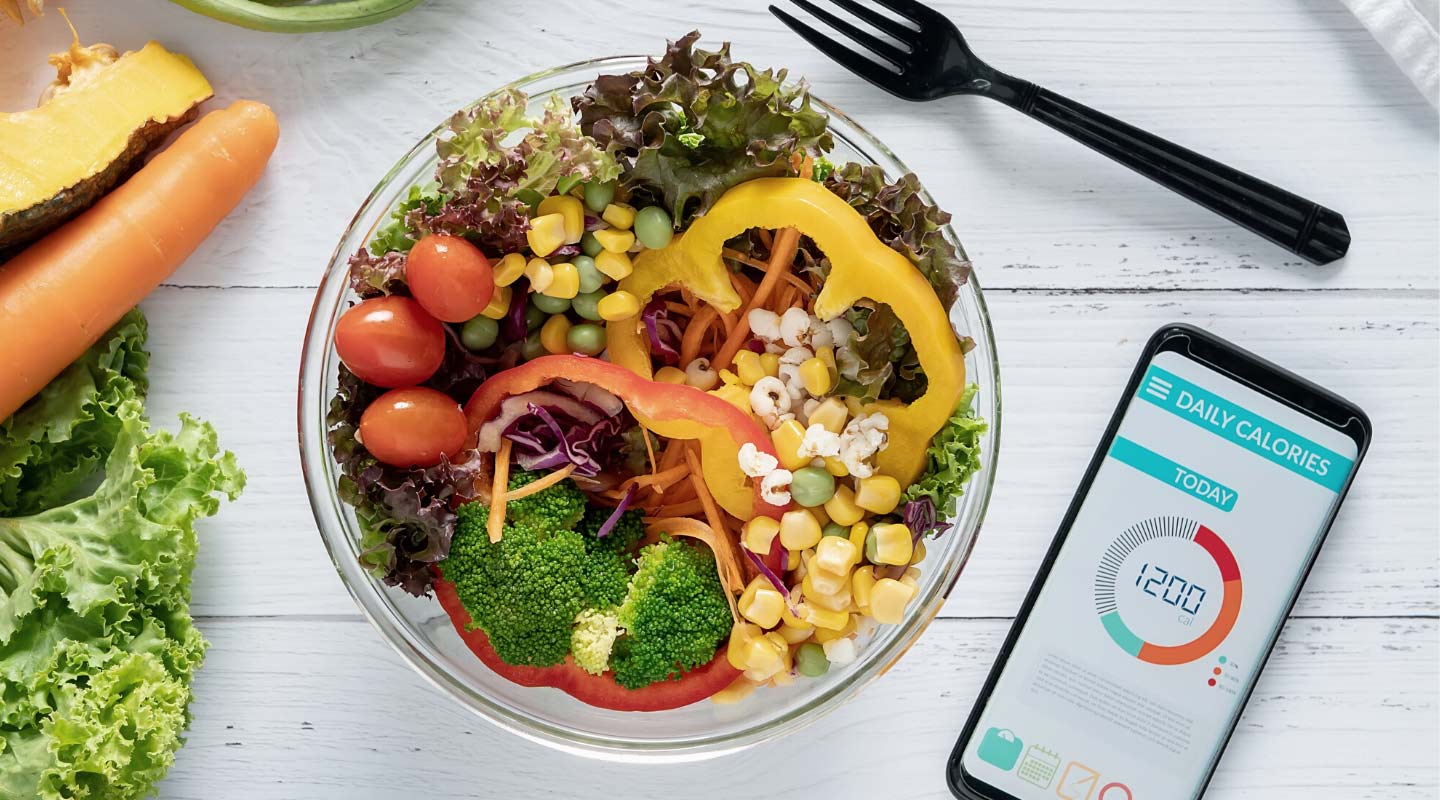
by Stephanie Margolis. R.D.
Updated July 18, 2022
As a dietitian, you tend to know way too much about the “measure” of food. I can tell you (or accurately guess) how many calories are in most foods. Eggs? 71. Slice of bread? It depends… anywhere between 60 and 190 per slice. When you spend 5 years learning how food works in the body, the science behind it, and the numerical impact it has on blood chemistry, knowing exact calories is vital. However, when I worked in the clinical setting I would often see my clients focus on that number so much, but fail to change the types of foods they were consuming. They may hit their “prescribed” goal but still choose highly processed, even unhealthy, foods. This would often lead them to feel hungrier than before without seeing any improvements in their weight or health.
We are going to talk a lot about calories here. But like many things in weight loss and food there is no magic bullet. You can’t just eat 1200 calories a day, or just cut out sugar, or just get enough protein and veggies. It’s a combination of many things but maybe counting calories is one of those things that just isn’t working for you … making you feel like you are doing more dieting and less living.
Note: The information listed below is not specific to breastfeeding or pregnant moms. For more nutrition guidance visit our pregnancy and breastfeeding nutrition articles.
Well, sort of. It is true that calories exist, they are the measurement of how much “energy” a food has. It is true that if you consume too much “energy” without burning it off you will gain weight. And it is true if you eat less “energy” you will lose weight. However, what counts even more is the type of calories you are consuming. Let’s say you are told to eat 1200 calories. You could eat 1200 calories of cookies and pizza and you may lose weight at first. What a great diet! But that’s the thing, you’re on a diet, and sooner or later those portion sizes are going to creep up, the calories are going to creep up and the weight is going to creep back on. The diet mindset is also not a healthy place to sit in for a length of time. This mindset is usually full of depriving and self-deprecating thoughts.
More importantly, eating those types of nutritionally empty foods is doing your body no favors, and even if you shed some pounds you aren’t going to feel good, and will likely have other health concerns if you continue that path.
I think for most individuals the short answer is yes. Instead, shift your mindset and focus on enjoying whole/organic foods, increasing the variety of foods in your diet, preparing more of your own foods, and getting in touch with your body and how healthy you feel. If you are choosing the right foods for your body you’re going to know it. Your energy levels will increase, you’ll feel more focused, you will feel less hungry and more satisfied. You will know when you are doing the right thing for your body. I know some of you reading are thinking “this sounds great and very zen, but I don’t even know where to start!” Well…
If you have been stuck in the rut of counting calories first step? Delete the app or tracker you are using to tally your calories. Next, you do need to have a general idea of what your day will look like. Moms Into Fitness has meal plans to get you started. Finally, focus on whole, organic foods. A fresh apple, sliced red bell peppers, all these things are easy ways to start focusing more on the type of food you are putting in your body over the caloric amount.
In addition to focusing on whole foods, think about how often you are eating in a day. This varies depending on your daily routine but typically eating 4 – 5 times a day works well for people. This allows snacking and also helps keep your blood glucose in check. However, if that is just too much food prep for you, or doesn’t work in your day, think about fueling your body to a point where you aren’t overly full after a meal and aren’t hangry between meals.
While I completely believe in limiting or eliminating the counting of calories there are a few exceptions. For starters, when I am creating a meal plan, I still start with calories and calculate the macronutrients and micronutrients from that number to set my outline. I then fill in those goals with wholesome, nutrient-dense foods. Secondly, there are individuals who need to know their numbers. Those suffering from diabetes will need to know their carb count, which is usually based on some calorie level. Women who are pregnant or breastfeeding who are trying to get the right amount of calories or nutrients may need to know their numbers, or at least the number of calories in an extra snack or meal.
There is not a magic way to manage your weight and health, different things are going to click for different people. However, we do know that a mindful, balanced approach can help get you off the diet rollercoaster and lead to a healthier approach to food.
Bottom Line: When we look at the science behind weight loss strategies that work, choosing a variety of colorful and wholesome foods tops the list. What does work?